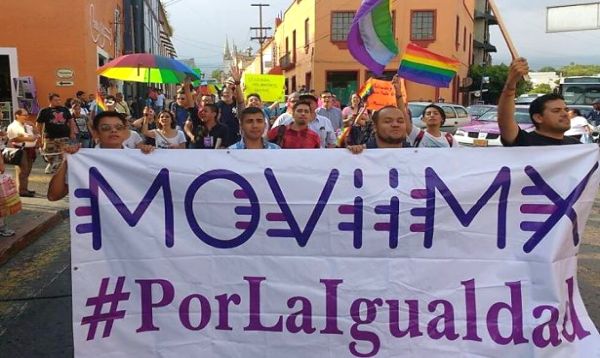Cuernavaca, Mexico - Hundreds of LGBT rights activists came together in Cuernavaca last weekend in an unprecedented nationwide gathering. The diverse group included representatives from most of Mexico's 32 states and districts as well as organizations such as the Harvey Milk Foundation, drawn together by shared concern over surging hostilities towards their community.
 |
The LGBT community in Mexico is no stranger to struggle, but there has been incremental progress for the movement. Over the years, Mexican LGBT activists have combated workplace discrimination, hate crimes and police abuse, while campaigning for fair representation in the media. The federal district of Mexico City legalized same-sex marriage in 2009 - a milestone for Latin America - and in 2010, the Supreme Court required other Mexican states to recognize unions performed there.
In June 2015, the Mexican Supreme Court ruled it illegal for state courts to forbid same-sex marriage. As a result, same-sex couples can petition for a marriage license in states where same-sex unions are not recognized, which currently is the case in the vast majority of the country. Following this decision, the Supreme Court urged states to legalize same-sex marriages, but many remain opposed on religious grounds. According to Reuters, polls at the time of the ruling showed the population split about 50-50 on the issue, while conservative Catholic groups actively denounced the Supreme Court's decision.
 |
The announcement ignited a flurry of backlash from conservatives as the bill awaits congressional consideration. While the Orlando shootings prompted debate about the church's role in contributing to homophobia, some opponents of same-sex marriage have grown more strident as the Mexican Congress prepares to return to session in the fall. Conservative Catholic leaders have called on congregants to take to streets in protest in September, a strategy reminiscent of anti-abortion rallies in recent years. They are also lobbying for the removal of lessons on gender in primary schools, arguing that such content encourages homosexuality.
These activities have alarmed LGBT activists, sparking this weekend's gathering as a launch towards more concerted collaboration. Looking ahead to September, the group indicated it would mount public demonstrations of its own and redouble its lobbying effort to members of Congress, calling for the protection of their rights and enforcement of the separation of church and state. Despite the stiff opposition ahead, many LGBT advocates are pointing to their progress thus far and remain determined to sustain their march towards equality.
Original article


